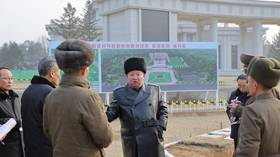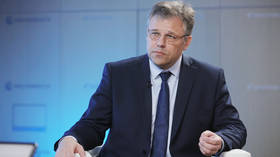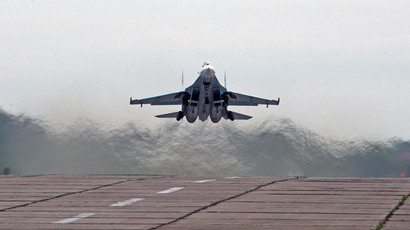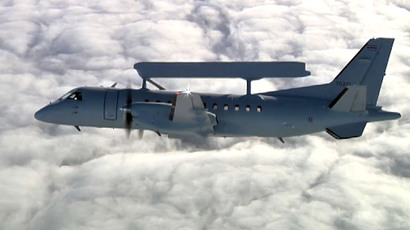Obama: Regular NATO presence required in Eastern Europe
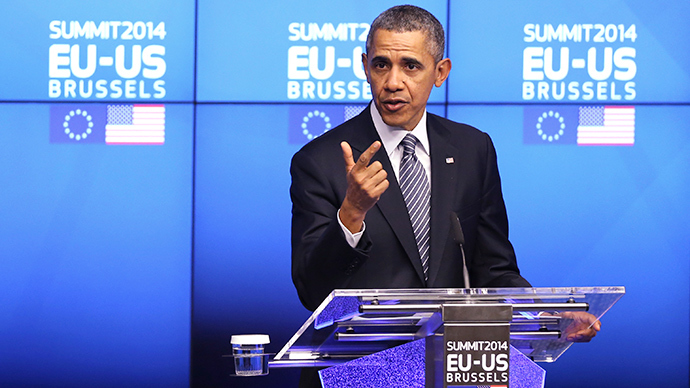
NATO must have a sustained presence in countries that feel “vulnerable” to Russia, US President Barack Obama said at a meeting with EU leaders in Brussels. He added that neither Ukraine nor Georgia was currently being considered for NATO membership.
Obama insisted that contingency plans had to be examined and
“updated” to guarantee “that we do more to ensure
that a regular NATO presence among some of these states that may
feel vulnerable is executed.” The comments came during a
four-day trip to Europe by the US president.
However, Obama expressed concern that defense spending in Europe
had fallen in several countries across the continent. “If we
have collective defense it means everyone has to chip in, and I
have concern about diminished efforts by some in NATO,” he
said.
“Our freedom isn't free,” he said, adding that it was
necessary to “pay for the assets, the personnel, the
training... for deterrent force.”
Anders Fogh-Rasmussen, Secretary-General of NATO, displayed
public support for a heightened NATO presence after meeting with
Obama during his Brussels visit.
“I join Barack Obama in considering additional NATO measures:
updated defense plans, enhanced exercises, appropriate
deployments,” Rasmussen tweeted Wednesday. He added that
cooperation with Ukraine may be enhanced.
As we prepare for #NATOSummitUK we will review viability of our relationship w/ #Russia & enhance co-op w/ partners incl #Ukraine
— AndersFogh Rasmussen (@AndersFoghR) March 26, 2014
NATO spokeswoman Oana Lungescu confirmed on Twitter that updated
defense plans, enhanced exercises and appropriate deployments
were being reviewed.
However, while there have been several discussions over whether
Ukraine and Georgia will be fast-tracked for EU membership, Obama
rebutted the possibility during his Wednesday speech. He said
that neither of the two countries is “on a path” to NATO
membership and that it would be “unrealistic” to expect the
situation to change anytime soon, on account of the complicated
relations between Moscow and Kiev.
The deployment and presence of US military forces have been of great concern to Russia with NATO’s possible advance to the East considered a direct threat.
As such Russia’s position was voiced by Defense Minister Sergey Shoigu back in November. A few months earlier, Prime Minister Dmitry Medvedev said that having “new NATO members” close to Russia “changes parity of forces” and that Russia will have to react. Back in June, Medvedev stressed that NATO is “a structure with a certain military potential, which could be used against Russia” under adverse circumstances.
Meanwhile, the US military have been amassing forces in Europe.
On March 13, US F-16 fighter jets took part in military exercises
at Lask airbase in Poland. The US military are also planning
large scale war games in Poland, which would involve troops from
several eastern European states, the American ambassador to the
country, Stephen Mull, said last Friday.
Shortly afterward, it was announced that in July, military
exercises under the title of Rapid Trident 2014 are to take place
in Ukraine. US Army Europe (USAREUR) will be heading up the
exercises.
Their purpose is to “promote regional stability and security,
strengthen partnership capacity and foster trust while improving
interoperability between the land forces of Ukraine, and NATO and
partner nations,” according to the US Forces in Europe’s
website.
The exercises have taken place annually in Ukraine for a number
of years. However, given the international commotion that has
been generated by the Ukrainian crisis, Rapid Trident 2014 will
take place under entirely different circumstances than last
year’s event.







